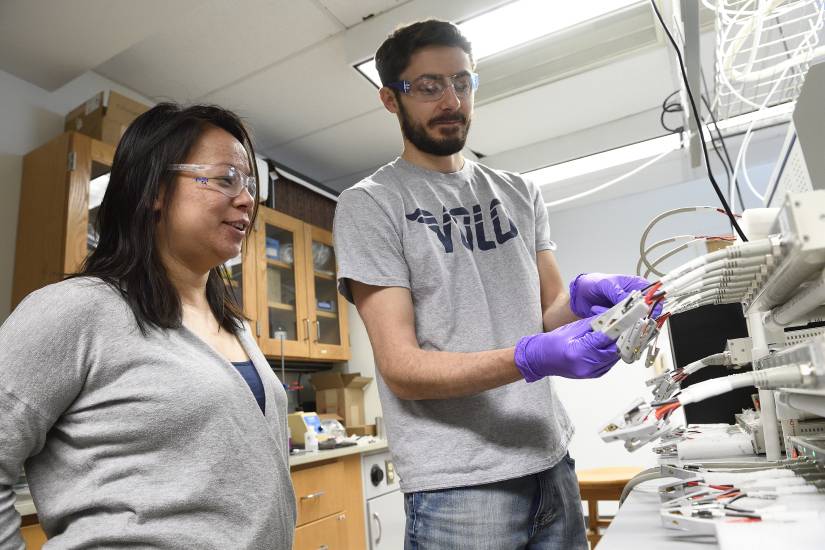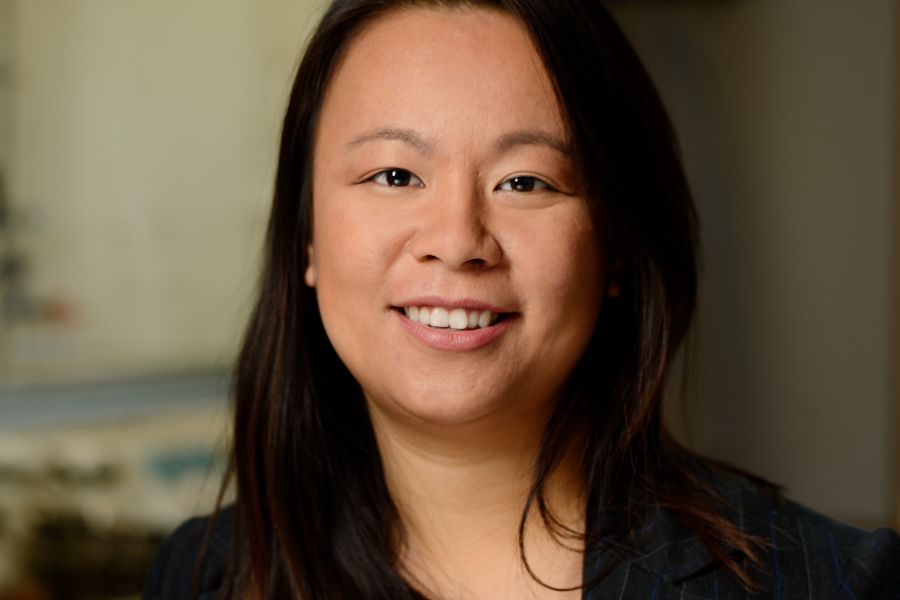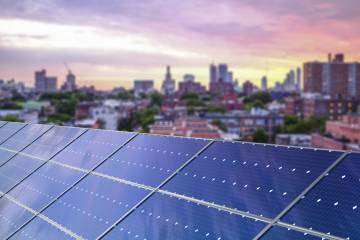Sara Thoi has been interested in sustainability since a high school science fair in which she and a partner created a parabolic dish, which can be used to reflect or concentrate energy.
"To measure if the parabolic dish was constructed correctly, we measured the temperature at the focal point. To our amazement, the temperature was so hot, it melted our probe!" Thoi recently told the Ralph O'Connor Sustainable Energy Institute blog. "It was exhilarating to see that we were able to design something from scratch and be able to concentrate solar energy."
Now, Thoi, an assistant professor in the Johns Hopkins Department of Chemistry, leads a research group combining synthetic chemistry and materials science to research and develop new materials and systems for energy storage and conversion with a special focus on next-generation batteries and fuel cells. She's among a group of ROSEI researchers leading an effort to rethink solar energy capture and use to make it more adaptable and reliable.
As we approach Earth Day, the Hub is sharing a portion of the ROSEI blog featuring Thoi. Learn more about what drives Thoi's research, how she's reimagining the humble battery, and how a commitment to sustainability was instilled in her from a young age.
Why are you passionate about sustainability/renewable energy?
Growing up in an immigrant family, it was instilled in me that resources are limited and we should never be wasteful. As I grew older and learned about climate change, I was alarmed by our wasteful practices and unsustainable energy usage and I was convinced that I have a responsibility to help find a solution. Since then, I have taken every opportunity to work in renewable energy—from biodiesel, catalysis, fuel cells, to batteries.
Now, as a new parent, this urgency has intensified. I am personally motivated to ensure a world in which my daughter and her future generation can be safe and prosper.

Image caption: The Thoi Research Group focuses on developing a new suite of materials and catalysts for energy conversion and storage.
Image credit: Will Kirk / Johns Hopkins University
How does your commitment to sustainability play out in your everyday life?
I think sustainability plays out in every part of my life. I try to buy less and reuse as much as possible. I am not ashamed to say that I often peruse the neighborhood yard sale for used toys and old kitchenware. I drive a 20-year-old Corolla because, well, it still works (and has good gas mileage)! I hope our everyday efforts, while small, will help shape the conversation around sustainability and bring about larger changes.
Tell us about your research, and what aspects currently or in the future tie into sustainable energy efforts?
My research group is broadly focused on energy conversion and storage. One part of my group is interested in converting waste products like carbon dioxide and nitrate into more useful chemical feedstocks and carbon-neutral fuels. We hope to drive this chemistry using electricity generated from renewable energy under ambient temperature and pressure in water. The other part of my group is developing high-density energy storage devices that are inexpensive and reliable. In the past few years, we have focused our efforts on lithium-sulfur batteries, which is a promising alternative to lithium ion batteries with up to 10x the storage capacity and contain earth-abundant raw materials like sulfur. I believe catalytic chemical transformations and energy storage are two solutions (of many) to the large, multifaceted problem of sustainable energy.
What advice or suggestions do you have for students who want to pursue careers in sustainable energy?
It is easy to feel that your work is insignificant compared to the size of the climate change challenge, but know that you are part of a greater team that are piecing together a solution to a very complex problem. The skills and knowledge you learn today will serve you in ways you will never imagine, so stay true to your passion and keep chugging away!









